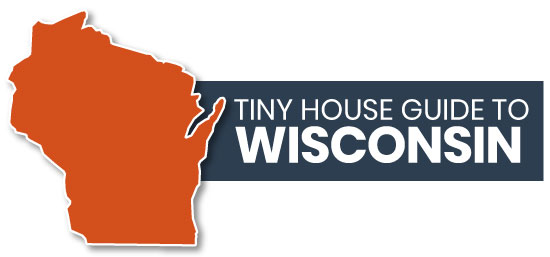
QUICK FACTS:
Are Tiny Houses Legal In Wisconsin: Yes
Tiny House Costs In Wisconsin: $40,000 – $90,000
Tiny House Friendly Cities: Madison and Milwaukee
Escape Traveler Rice Lake, Wisconsin
The tiny houses at Escape Traveler include panoramic windows, full kitchens, large bathrooms, large first floor bedrooms, washer/dryers, plenty of storage, full climate control, LED lighting, and off-grid options. They have nine prefabricated designs as well as a custom option!
Escape designs have been in use for years in one of the most brutal climates in America — northwestern Wisconsin. Temperatures reach the 90s in the summer and stay below zero in the winter for extended periods, but these tiny houses are built to withstand the contrasting weather. Contact Escape Traveler through the website to start building your tiny house.
Wisconsin Tiny Homes Elroy, Wisconsin
At Wisconsin Tiny Homes, you have the option of buying a prefab tiny house, customizing your design, or buying floorplans online. Their team typically turns builds around back to the homeowner in 90 to 120 days. All structures are built to function partially or completely off-grid. Check out the website to learn more.
Picknell’s Tiny Homes On Wheels Frederic, Wisconsin
Pfeiffer Trailer Sales Bristol, Wisconsin
Mirsberger Sales & Service Hilbert, Wisconsin
Eldorado Trailer Sales Eldorado, Wisconsin
Tiny Houses For Sale In Wisconsin
There is much more to life in the Midwest than meets the eye. Wisconsin has recently been ranked sixth best in WalletHub’s Best States to Live in ranking, for several reasons.
Wisconsin is considered one of the highest quality states to reside in when it comes to education and quality of life. The state is renowned for its good schools, affordability, gorgeous natural landscapes, and classic Midwestern hospitality. The cities of Milwaukee, Eau Claire, and Appleton are often recognized as some of the best cities to raise a family in the U.S.
There are many reasons why families are falling in love with the simple life in the Cheese State. Check out these tiny house listings throughout Wisconsin to begin your tiny life in the area.
The tourism industry is huge in Wisconsin, and there is much more to the area than dairy production. Vacationers are attracted to the hundreds of miles of lakeshore, peaceful forests, vast state parks, beautiful islands, snowmobiling, and skiing sites that the state has to offer.
The state is a highly popular vacation destination for thrill seekers, nature lovers, and families looking to spend quality time together. Check out these tiny homes on Airbnb to book your next trip to Wisconsin.
Whether you’re engaging in an intentional living community of like-minded individuals or staying in a tiny house vacation village short term, there is much to be gained from tiny communities. It’s a perfect way get to know others who want to live tiny and engage in a more peaceful way of life.
Canoe Bay Escape Village
Located in Rice Lake, Wisconsin, Canoe Bay Escape Village is the first tiny house vacation village in the Midwest. Canoe Bay is made up of 21 tiny units and sits on over 100 acres of rolling, mixed hardwood forests with multiple private lakes and wetlands.
Features in each tiny house in the village include panoramic windows, a full kitchen, large bathrooms and bedrooms, washer and dryer, plenty of storage, and full climate control. Many tiny house lovers have raved about this idyllic vacation getaway. You can book your stay at Canoe Bay Escape Village through the website.
Village Cohousing Community
Village Cohousing Community is proud to be named Madison’s first complete cohousing project. This intentional living community is located on Mound Street, South Mills Street, and St. James Court in the Greenbush neighborhood.
The goals of this intentional living community are to reflect diversity, honor connections to the land and locale, make decisions by consensus, negotiate differences in a principled fashion, and to share the daily and weekly work of keeping things going.
The community shares common spaces including a common house, garden, library, large kitchen, and play and recreation areas. You can contact the community founders through their website if interested in joining the Village Cohousing Community.
There are many groups out there that are awesome for people who want to connect with other tiny housers. If you want to connect with people who share a passion for tiny living, consider joining a social group centered around the tiny house lifestyle.
I encourage you to look for your own social groups and comment your findings at the bottom of our page. Or better yet, start your own group and tell us about it!
Wisconsin Tiny House Enthusiasts
The Wisconsin Tiny House Enthusiasts has over 1,000 members that have joined to discuss their love of tiny homes. Anyone in the state of Wisconsin who has questions, wisdom, advice, or tiny house enthusiasm to share is welcome to join the group.
Wisconsin Chickens And Homesteading
The Wisconsin Chickens and Homesteading Facebook page is for anyone in the state of Wisconsin who relies on chickens and homesteading to support their simple life. Members can share ideas about simple living, basic homesteading, raising chickens, and more. The community is currently private with about 1,000 members, but anyone is welcome to join in the conversation.
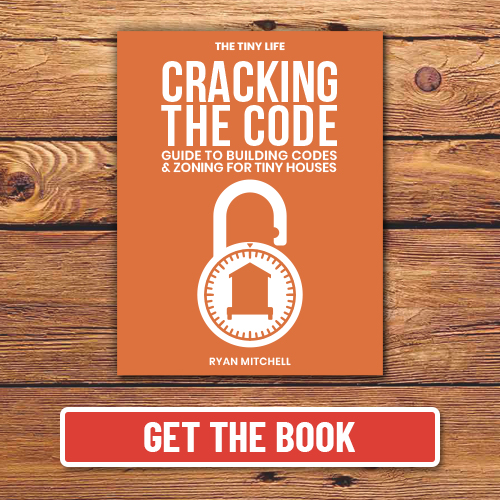

The State of Wisconsin does follow a few regulations around tiny homes. Unanimously, tiny houses in Wisconsin must be a minimum of 120 square feet and contain at least one room considered habitable in the long term. After this specificity, most other regulations can get muddy and are extremely contingent upon where you live in the state.
Some cities and counties have set the minimum square footage requirement higher than the state building laws do (closer to 150 or 200 square foot minimum) for tiny homes and accessory dwelling units.
Are Tiny Houses On Foundation Legal In Wisconsin?
Wisconsin accommodates tiny houses on permanent foundations reasonably well in many areas throughout the state. On the flip side, there are many specific counties, cities, and zoning codes that prohibit the use of tiny homes as standalone structures on permanent foundations. Whether or not you can build tiny on your property really depends on where you live.
As a general rule for tiny homes on foundation in Wisconsin, homeowners should consult The Uniform Dwelling Code (UDC). This is the statewide building code for one- and two-family dwellings when building. Questions regarding the Uniform Dwelling Code can be sent to dspssbudctech@wisconsin.gov.
Apart from the regulations in this statewide building code, reach out to your local government for assistance with requirements. It may seem like an unsatisfying answer, but this is the best way to determine if you can live full time in your tiny home in Wisconsin.
Are Tiny Houses On Wheels Legal In Wisconsin?
Similar to many other states, Wisconsin has yet to develop any specific laws regarding tiny homes on wheels. Due to this, tiny homes on wheels are commonly classified as recreational vehicles by the State, and their regulations are monitored through the State of Wisconsin Department of Transportation.
Tiny homes can be classified as:
- Recreational Vehicle: A vehicle that is designed to be towed upon a highway by a motor vehicle, that is equipped and used, or intended to be used, primarily for temporary or recreational human habitation, that has walls of rigid construction, and that does not exceed 45 feet in length.
- Manufactured Home: A structure that is designed to be used as a dwelling with or without a permanent foundation and that is certified by the federal department of housing and urban development as complying with the standards established under 42 USC 5401 to 5425.
- Mobile Home: A vehicle manufactured or assembled before June 15, 1976, designed to be towed as a single unit or in sections upon a highway by a motor vehicle and equipped and used, or intended to be used, primarily for human habitation, with walls of rigid uncollapsible construction, which has an overall length in excess of 45 feet.
Tiny House Building Codes In Key Counties Of Wisconsin
County building laws have a lot of power in the state of Wisconsin when it comes to what is and is not allowed. A great deal of housing regulations in Wisconsin are dealt with at the county level.
Dane County, Wisconsin
Dane County is one of the only counties in the state of Wisconsin that has created a law surrounding the legality of tiny homes. Dane County specifically permits tiny homes them only in the form of accessory dwelling units (ADUs). Additionally, the tiny house ADUs can be no larger than 150 square feet.
Barron County, Wisconsin
Barron County is one of the more lenient counties in Wisconsin when it comes to tiny living. The County does not have specific laws that prohibit tiny homes explicitly, allowing more freedom for tiny homeowners. Additionally, Barron County is home to the first tiny house village in the area.
Tiny House Building Codes In Key Cities Of Wisconsin
Some cities in Wisconsin tend to be a lot more accepting of the tiny house lifestyle, while others have laws in place that prohibit tiny homeowners from the lifestyle they desire. Let’s take a look at some key cities in Wisconsin and the way their laws affect tiny housers.
Madison, Wisconsin
Madison, Wisconsin, has created its own classification for tiny houses on wheels to allow them in the area. The city defines THOWs as “portable shelters,” or tiny houses on wheels that are at or under 150 square feet. This classification makes it easier for tiny homeowners to live permanently in Madison.
Milwaukee, Wisconsin
Milwaukee, Wisconsin, is one of the more lenient cities when it comes to tiny house laws. In fact, the City is currently in the process of partnering with a nonprofit to create a tiny house shelter for homeless veterans. The group is building 40 tiny homes, a recreation center, and food pantry for use by military veterans in Milwaukee.
Tiny House Building Codes In Wisconsin:
Tiny House Laws In Wisconsin:
*Disclaimer: The information provided on this website should not be taken as an expert opinion, consultation, or advisement of any kind. Building codes, home building, zoning, local laws etc are complicated and ultimately your responsibility to execute legally and safely. You must do your own research, consult with and verify with all applicable authorities, local officials, regulatory bodies, code and zoning officials, and city/state/federal governments. See our full legal page for further information here: https://thetinylife.com/about-us/legal/
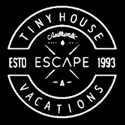





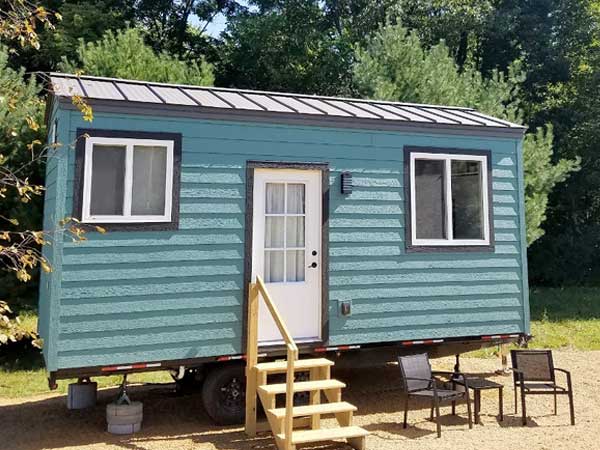

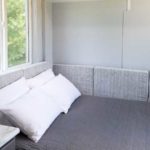

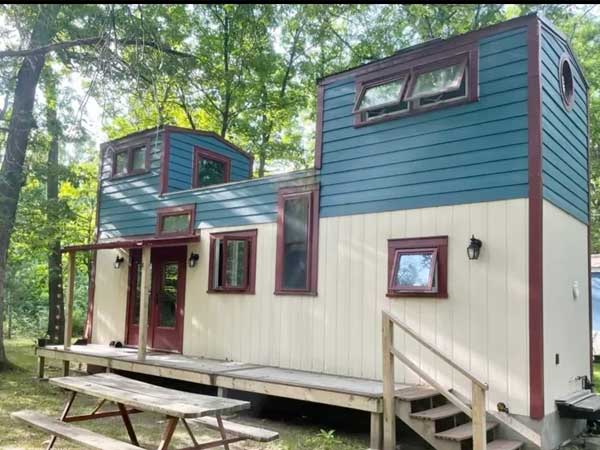
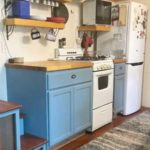
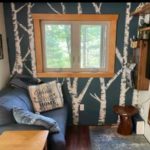
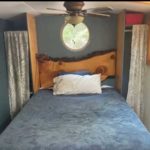
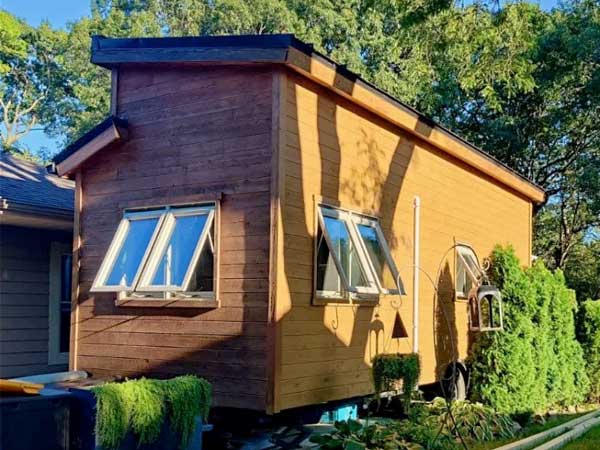

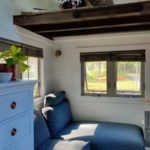

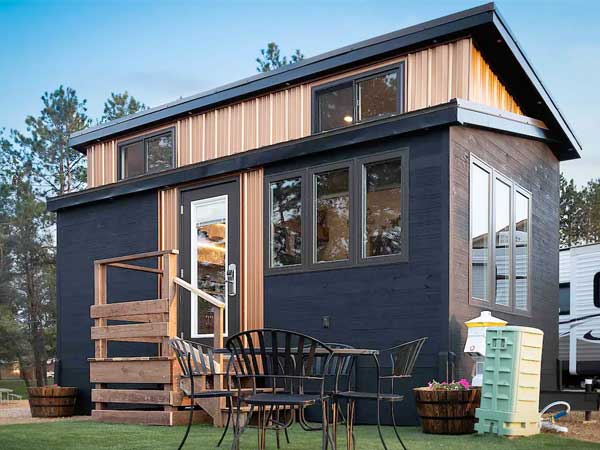



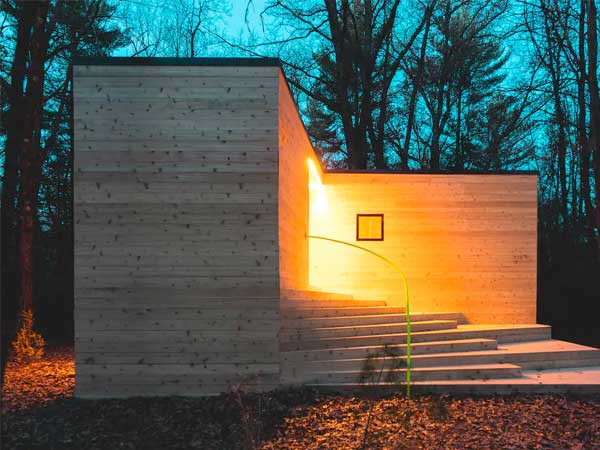
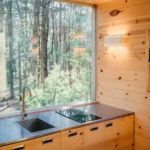

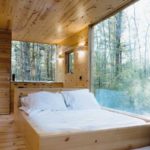
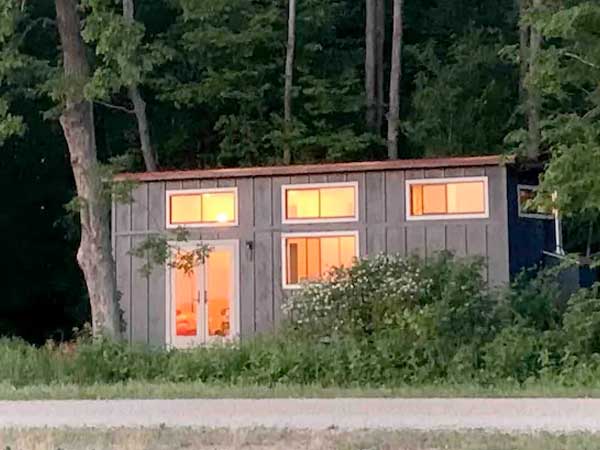
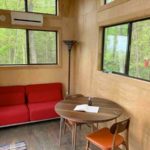
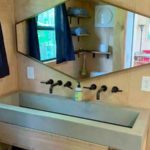
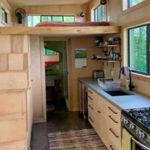
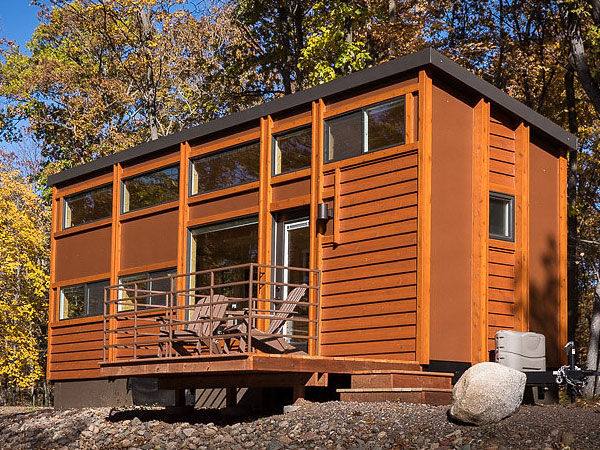
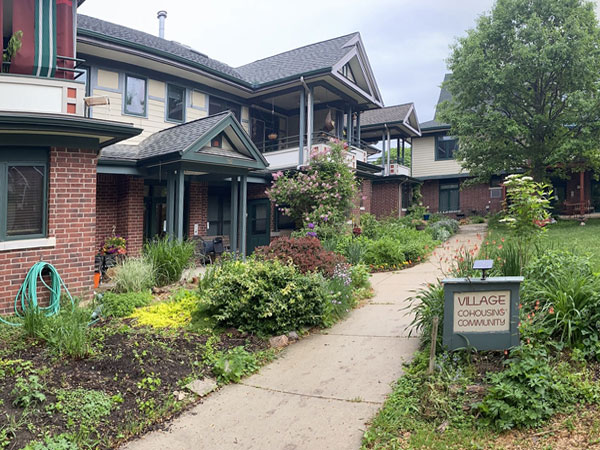
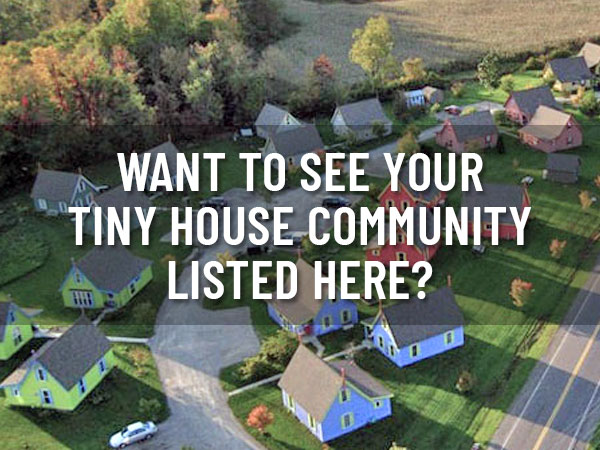
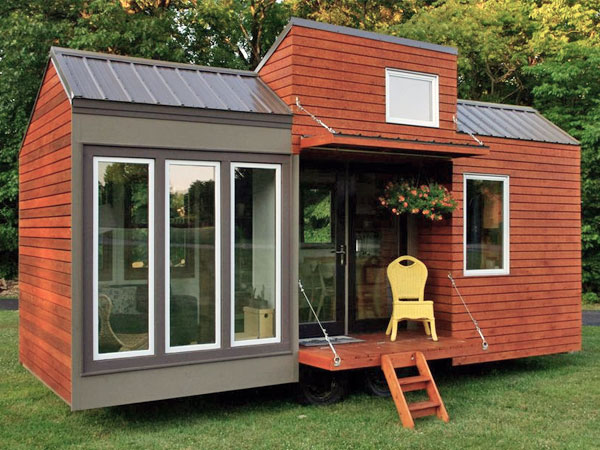
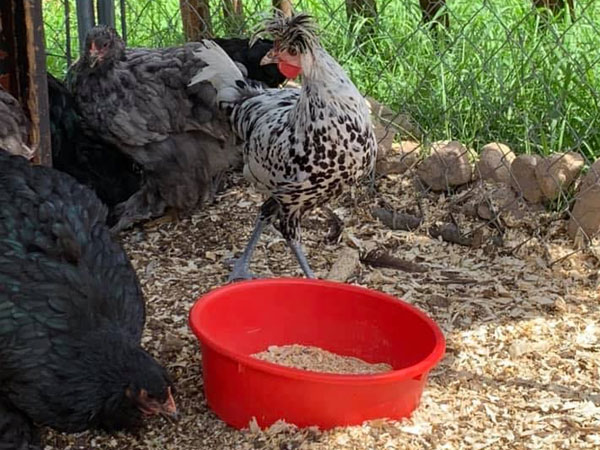
I think that the Tiny Homes concept is a home owner’s ulcerative that is long overdue! When I became a single mother, I would have jumped at the chance to buy an easily moved, well planned home that I didn’t have to be paying out 40% of my income,plus $4,000.00/ year in taxes, ever increasing, along with association fees,on a condo permanently on land that I would never own,not to mention the nosey, judgmental neighbor’s, residing almost on top of my personal space! Being able to move my hometown a new location, to give my Hildreth a nicer place to grow up in, as well as a comfortable place to retire without property taxes pushing me into homelessness! The smaller, ” footprint”, and energy saving possibilities that I have seen in many of these homes could only help our environment. I love the idea of having the option to live, “off the grid”, is also a plus if traveling to other parts of the country is on your, ” bucket list”!